
QUARTERLY REVIEW OF BIOLOGY
Scope & Guideline
Connecting Researchers to the Pulse of Biology
Introduction
Aims and Scopes
- Evolutionary Biology:
Explores mechanisms and theories surrounding evolution, including genetic, physiological, and ecological aspects. - Conservation Biology:
Focuses on the preservation of biodiversity, examining threats to species and ecosystems, and discussing strategies for effective conservation. - Ecology:
Investigates interactions between organisms and their environments, including population dynamics, community structure, and ecosystem function. - Behavioral Biology:
Studies the behavior of organisms, integrating insights from psychology, ethology, and evolutionary theory. - Paleobiology:
Examines the history of life on Earth through fossil records, contributing to our understanding of evolutionary processes and environmental changes. - Genetics and Genomics:
Analyzes genetic variation and its implications for biology, including evolutionary genetics, molecular biology, and population genomics. - Anthropology and Human Evolution:
Investigates the biological and cultural evolution of humans, exploring the interplay between biology and society.
Trending and Emerging
- Climate Change and Biodiversity:
An increasing number of articles focus on the effects of climate change on biodiversity, species interactions, and ecosystem resilience, emphasizing the urgency of addressing global environmental challenges. - Anthropocene Studies:
Research exploring human impacts on natural systems, including discussions on the Anthropocene epoch, is gaining traction, reflecting a growing recognition of human responsibility in ecological conservation. - Microbial Ecology:
Studies on microbial communities and their roles in ecosystems are increasingly prevalent, highlighting the importance of microbes in health, disease, and environmental processes. - Genomic Approaches in Evolutionary Studies:
There is a noticeable trend towards using genomic data to understand evolutionary processes, population dynamics, and species interactions, indicating a shift toward more integrative biological research. - Interdisciplinary Research:
The journal is seeing a rise in interdisciplinary studies that combine biology with fields such as anthropology, philosophy, and environmental science, fostering a holistic understanding of complex biological issues.
Declining or Waning
- Traditional Taxonomy:
There appears to be a waning interest in traditional taxonomic studies, as the field increasingly emphasizes molecular and genetic approaches for species identification and classification. - Historical Natural History:
The focus on historical narratives and natural history appears to be declining, possibly overshadowed by more pressing ecological and evolutionary challenges. - Purely Descriptive Studies:
Research that lacks a clear hypothesis or analytical framework is becoming less common, as the journal favors studies with robust experimental designs and theoretical implications. - Generalized Environmental Impacts:
Broad discussions on environmental impacts without specific case studies or quantitative analysis are less frequent, with a trend towards more detailed, data-driven investigations.
Similar Journals
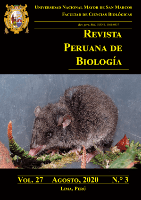
REVISTA PERUANA DE BIOLOGIA
Empowering Minds with Cutting-Edge Biological InsightsREVISTA PERUANA DE BIOLOGIA, an esteemed journal published by the Universidad Nacional Mayor de San Marcos, Faculty of Biological Sciences, has been a vital platform for disseminating significant biological research since its inception in 1974. With an Open Access model, this journal ensures that high-quality research is freely available to readers across the globe, fostering the advancement of knowledge within the field of agricultural and biological sciences. Despite proprietary challenges, the journal has secured a respectable Q3 category ranking in Agricultural and Biological Sciences and currently holds a 137th rank in Scopus among its peers. By embracing a comprehensive scope, REVISTA PERUANA DE BIOLOGIA encourages submissions that contribute to diverse biological topics, making it an essential resource for researchers, professionals, and students looking to enhance their understanding and expertise. With its ongoing commitment to excellence, this journal remains a cornerstone of biological research in Peru and beyond, reinforcing the importance of collaboration and knowledge sharing in the scientific community.

BIOLOGY BULLETIN
Connecting Scholars to the Heart of Biological Discoveries.BIOLOGY BULLETIN is a prominent academic journal published by PLEIADES PUBLISHING INC, dedicated to advancing the fields of Agricultural and Biological Sciences as well as Biochemistry, Genetics, and Molecular Biology. With an ISSN of 1062-3590 and E-ISSN of 1608-3059, the journal has been a vital resource for researchers and professionals since its commencement in 1996. Located in the United States, BIOLOGY BULLETIN operates within a highly competitive academic landscape, achieving a 2023 ranking in the Q3 quartile for Agricultural and Biological Sciences and Q4 for Biochemistry, Genetics, and Molecular Biology, highlighting its commitment to delivering impactful research despite its challenges. Researchers seeking to publish their findings will find a platform for significant insights, as reflected in its Scopus rankings, where it stands at #183 and #199 out of 221 in its respective categories, showcasing opportunities for growth and visibility. While currently not an open-access publication, BIOLOGY BULLETIN plays a crucial role in facilitating scholarly communication and fostering an understanding of biological sciences, making it an essential read for academics, professionals, and students alike.
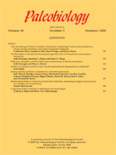
PALEOBIOLOGY
Exploring the Depths of Life's Ancient HistoryPALEOBIOLOGY, published by Cambridge University Press, is a premier, peer-reviewed journal that stands at the forefront of research in paleontological sciences. With a robust commitment to advancing the study of the interactions between ancient life forms and their environments, the journal has established itself as a vital resource for researchers, professionals, and students in the fields of paleontology, ecology, and evolutionary biology. Spanning from 1975 to 2024, it boasts an impressive Q1 ranking in several categories, including Agricultural and Biological Sciences, Ecology, and Paleontology, indicative of its high impact and relevance in shaping contemporary scientific discourse. While the journal is not open access, it offers a variety of subscription and access options, ensuring broad distribution and visibility of published research. As a leader in its discipline, PALEOBIOLOGY aims to facilitate a deeper understanding of our planet's biological history, making it an essential publication for anyone interested in the dynamics of life across geological time.
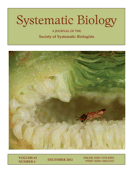
Systematic Biology
Fostering a deeper appreciation for the diversity of life.Systematic Biology is a premier journal published by Oxford University Press, dedicated to advancing the field of systematic biology through rigorous research and comprehensive reviews. Established in 1952, this esteemed journal has become a cornerstone of scholarship in Ecology, Evolution, Behavior and Systematics and Genetics, consistently ranking in the Q1 category as of 2023. With an impressive Scopus ranking—19th in Ecology and Evolution and 23rd in Genetics—Systematic Biology offers a platform for the dissemination of groundbreaking research, novel methodologies, and critical discussions that shape our understanding of biological diversity and evolution. While the journal does not currently offer open access options, it maintains a strong commitment to quality and integrity in publishing, ensuring that every article contributes meaningfully to the scientific community. Researchers, professionals, and students alike will find valuable insights and a wealth of knowledge within its pages, supporting their work and fostering a deeper appreciation for the intricate web of life.

Molecular Ecology Resources
Fostering Excellence in Molecular Ecology ResearchMolecular Ecology Resources, published by WILEY, is a leading international journal that specializes in the intersection of molecular biology with ecology and evolution. With an impressive impact factor signified by its Q1 status in multiple categories, including Biotechnology, Ecology, Evolution, Behavior and Systematics, and Genetics for 2023, this journal stands as a reputable source of groundbreaking research within the fields of agricultural and biological sciences. Its Scopus rankings are particularly noteworthy, placing it in the top tier of its respective categories, demonstrating its significance in advancing our understanding of molecular ecology. The journal has been committed to fostering high-quality scientific discourse from 2008 to 2024 and offers open access options to enhance its visibility and accessibility. As a researcher, professional, or student in these dynamic fields, engaging with Molecular Ecology Resources means contributing to and staying informed about the latest innovations and methodologies that shape our understanding of the biological world.

Biological Theory
Illuminating the Pathways of Life SciencesBiological Theory is an esteemed academic journal published by Springernature, focusing on the interdisciplinary realms of ecology, evolution, behavior, and philosophy of science. With an ISSN of 1555-5542 and an E-ISSN of 1555-5550, the journal had its converged years from 2006 to 2011 and from 2013 to 2024, reflecting its commitment to ongoing scholarly dialogue. Notably, it holds a prestigious Q2 ranking in Ecology, Evolution, Behavior and Systematics, and an impressive Q1 ranking in History and Philosophy of Science, highlighting its influential role in shaping discussions across these fields. The journal is well-received in the academic community, with Scopus rankings placing it in the 88th percentile for History and Philosophy of Science and the 59th percentile for Ecology, demonstrating its broad impact and relevance. Researchers, professionals, and students can access cutting-edge theories and critical analyses of biological concepts that contribute to a deeper understanding of life sciences without an open access model, further emphasizing the journal's significance in both historical and contemporary scientific discourse.
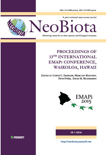
NeoBiota
Championing innovative research in ecology and conservation.NeoBiota, published by Pensoft Publishers in Bulgaria, is a preeminent Open Access journal dedicated to advancing knowledge in biodiversity, ecology, and conservation science. Since its inception in 2011, it has established itself as a pivotal platform for scholarly discourse, maintaining an impressive impact factor that places it in the Q1 quartile across multiple categories, including Animal Science and Zoology, Aquatic Science, and Ecology. With its articles indexed in leading databases and Scopus rankings that affirm its standing (e.g., rank #12 in Animal Science and Zoology), NeoBiota serves as a vital resource for researchers, professionals, and students. The journal emphasizes the synthesis of ecological modeling and evolutionary processes, fostering interdisciplinary collaboration and promoting rigorous research methodologies. Authors are encouraged to contribute their insights on biodiversity metrics, ecosystem dynamics, and the ecological implications of anthropogenic changes, making NeoBiota essential for anyone invested in the future of our planet's ecosystems. Discover the treasures of ecological scholarship through this influential journal.

EVOLUTIONARY ANTHROPOLOGY
Exploring the Intersections of Anthropology and MedicineEVOLUTIONARY ANTHROPOLOGY is a premier journal published by WILEY, dedicated to advancing the field of anthropology through innovative and rigorous research. With an ISSN of 1060-1538 and an E-ISSN of 1520-6505, this journal boasts a remarkable Q1 ranking in both the Anthropology and Medicine (miscellaneous) categories, reflecting its significant impact within the academic community. Since its inception in 1992, it has continuously evolved, now encompassing a wide array of subjects pertinent to evolutionary studies and human health. Residing in the highly competitive Scopus rankings, it stands at an impressive rank of 10 out of 502 in the field, placing it within the top 2% of journals in Social Sciences - Anthropology. Researchers, professionals, and students alike will find this journal an invaluable resource for the latest findings, theoretical advancements, and discussions that shape our understanding of human evolution and its biological implications. While not categorized as an Open Access journal, EVOLUTIONARY ANTHROPOLOGY remains a vital outlet for high-quality scholarship, fostering dialogue and enriching knowledge across diverse audiences.

Methods in Ecology and Evolution
Fostering collaboration for a deeper understanding of biological systems.Methods in Ecology and Evolution, published by WILEY, is a leading journal in the fields of ecology, evolution, and environmental science, with an impact factor that reflects its high-quality research contributions. Since its inception in 2011, this journal has become a cornerstone for researchers and practitioners, offering a platform for innovative methodologies and transformative insights that advance our understanding of ecological and evolutionary processes. With a prestigious Q1 ranking in both Ecological Modeling and Ecology, Evolution, Behavior and Systematics, the journal stands out among its peers, being ranked #28 out of 721 in the Agricultural and Biological Sciences category and #4 out of 41 in Environmental Science. The journal's comprehensive scope encourages interdisciplinary collaboration, making it an essential resource for anyone working at the intersection of ecological research and data modeling. Although it does not offer open access, the wealth of knowledge within its pages is invaluable for developing effective conservation strategies and understanding complex biological systems.
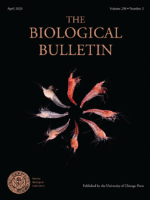
BIOLOGICAL BULLETIN
Unveiling the latest breakthroughs in biology.BIOLOGICAL BULLETIN is a premier journal published by The University of Chicago Press, catering to the vibrant field of Agricultural and Biological Sciences. Established in 1945, this long-standing publication has evolved to serve as a critical platform for disseminating cutting-edge research and insights across various biological disciplines. With a commendable impact factor and ranking in the top quartile (Q1) of its category, the journal is recognized for its rigorous peer-review process and its commitment to high-quality scholarship, ranking #74 out of 221 in the Agricultural and Biological Sciences category on Scopus. Researchers, professionals, and students will find a valuable resource in BIOLOGICAL BULLETIN, as it continually fosters scientific dialogue and innovation, ensuring the advancement of knowledge in the biological sciences. Although not openly accessible, the journal provides numerous access options for institutions and individuals wishing to engage with its content.